Reppy Institute for Peace and Conflict Studies
Funding for Faculty
Apply now for Einaudi research support!
Proposals are due March 16 for seed grants and new targeted support for early-career faculty with research in international studies.
Additional Information
World in Focus: Global Responses to Trump

January 27, 2026
4:00 pm
Uris Hall, G08
Join Einaudi Center experts for World in Focus Talks on global events in the news and on your mind. Our faculty's research and policy insights put the world in focus.
This year we’re hosting informal campus discussions on many Tuesday afternoons. This week’s topic:
The United States helped create the United Nations to protect the sovereignty of independent countries. Now the Trump administration is setting the tone for superpowers with imperial ambitions by waging economic war against democratic allies, violating long-standing treaties, and holding out the possibility of using military force.
What do these unprecedented actions mean for the rest of the world? How are states and peoples in different regions responding? And what may happen if tensions continue to escalate?
***
Featured Faculty
Agnieszka Nimark (PACS) | Affiliated ScholarMagnus Fiskesjö (EAP, PACS, SEAP) | AnthropologyAlexandra Blackman (SWANA) | GovernmentSeema Golestaneh (SWANA) | Near Eastern StudiesIrina Troconis (LACS) | Romance StudiesKenneth Roberts (LACS) | GovernmentPeter Katzenstein (IES, PACS) | Government
***
Conversations Matter at Einaudi
This conversation is hosted by the Mario Einaudi Center for International Studies and its regional and thematic programs. Find out what's in store for students at Einaudi!
Additional Information
Program
Einaudi Center for International Studies
Reppy Institute for Peace and Conflict Studies
East Asia Program
Southeast Asia Program
Latin American and Caribbean Studies
Institute for African Development
Institute for European Studies
South Asia Program
Migrations Program
Southwest Asia and North Africa Program
Book Talk - ILR Global Labor and Work Workshop - From Popular Front to Cold War: The Interracial Left and the International Workers Order, 1930–1954
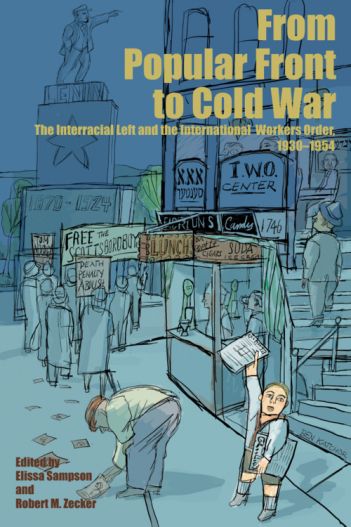
February 18, 2026
4:00 pm
Ives Hall, Doherty Lounge, 281 Faculty Wing
The Jewish Studies Program invites you to come join our colleagues at the School of Industrial and Labor Relations (ILR) Global Labor and Work Workshop in welcoming a new book from Cornell University Press at a book launch with Elissa Sampson and Robert Zecker. The Global Labor and Work series has a longstanding tradition of hosting panels and individual presentations that foster rich and stimulating discussions at the cutting edge of the study of work, labor, and employment—all within a collegial setting.
The room capacity of Doherty Lounge is limited to 36.
Co-editors Elissa Sampson and Robert Zecker will discuss their new book, "From Popular Front to Cold War," which tells the story of the International Workers Order (IWO). Originally a left-wing Yiddish-speaking fraternal organization founded in 1930 as a mutual benefit insurance society, the IWO uniquely became interracial and multiethnic, championing early civil-rights campaigns, battling for labor unions and needed social reforms during the Great Depression and World War II, while pushing the boundaries of multiracial social democracy. Although the postwar Red Scare sentenced the IWO to liquidation in 1954, this organization remains a vital reminder in our current distressing times that another world was possible.
At its height, the pro-Soviet IWO had almost 200,000 members drawn from a broad ethnic and racial spectrum of the working class--Jews, Blacks, Poles, Slovaks, Italians, Hispanics, and others. It operated summer camps, published foreign-language newspapers, and supported a wide range of cultural activities; its multilingual archives are housed at Cornell's Kheel Center. An early advocate for the US's entry into World War II, the IWO was ahead of its time in championing the nascent Civil Rights movement and Black leadership. Its leaders and activists included Clara Lemlich Shavelson, Paul Robeson, Langston Hughes, Louise Thompson Patterson, and Vito Marcantonio. The IWO was declared a subversive organization during the Cold War although its membership was not connected to the Communist Party. Its legacy as a model for working-class cooperation across racial and ethnic differences endures to this day.
Dr. Elissa Sampson is an urban geographer who studies how the past is actively used to create new spaces of migration, memory, heritage and activism. Her life-long interest in migration, diaspora, re-diasporization and immigrant culture has been pursued in the Lower East Side, Brooklyn, Jerusalem, Paris and elsewhere and points to the dynamic interactions among diasporas in shared spaces/places. She has worked extensively with Cornell University’s, Kheel Center archives on the International Workers Order (IWO) and is responsible for its partial digitization. She co-organized a public, online academic conference, “Di Linke,” (the Left) based largely on its Jewish Section holdings: a weeklong series of webcasts in December 2020 attracted more than six hundred attendees. She is a Research Associate in Cornell’s Jewish Studies Program where she has taught labor and gender history, including the 1911 Triangle Shirtwaist Fire, its memorialization, and its relationship to current activism. She has published in the fields of urban geography and memory studies as well as on the IWO and is the co-editor of "From Popular Front to Cold War: The Interracial Left and the International Workers Order, 1930–1954" from Cornell University Press.
Robert M. Zecker is a professor of history at Saint Francis Xavier University, Nova Scotia, Canada, where he teaches courses in race, immigration, social movements, and US history. His research includes immigration, radicalism, and the popular culture of immigrants on the left. He is the author of many articles in journals such as the Journal of American Ethnic History, American Communist History, the Journal of Popular Culture, and the Journal of Transnational American Studies. He is the author of four books, most recently “A Road to Peace and Freedom”: The International Workers Order and the Struggle for Economic Justice and Civil Rights, 1930–1954 (Temple University Press, 2018). He is currently writing a history of the workers’ schools of the CPUSA.
Sponsors: Jewish Studies Program, ILR School Global Labor and Work
Co-sponsors: Mario Einaudi Center for International Studies, Reppy Institute for Peace and Conflict Studies, Department of Government, Institute for Comparative Modernities, Department of Anthropology, Feminist, Gender, & Sexuality Studies Program, American Studies Program, Department of History, Africana Studies & Research Center
Additional Information
Program
Einaudi Center for International Studies
Reppy Institute for Peace and Conflict Studies
Institute for African Development Spring Symposium: Artificial Intelligence and the Global South: Perils, Pitfalls and Potential

April 23, 2026
9:00 am
401 Warren hall
April 22-23, 2026 401 Warren Hall Artificial intelligence (AI) is viewed by some as having great promise, while others view the arrival of this novel technology with skepticism or concern. AI is certainly having a significant impact in many arenas of life. What are the specific implications of AI for people living in the Global South? This conference will examine the specific social, political, environmental and economic impacts of AI in and for the Global South, taking a holistic, perspective that considers the historical, socio-cultural, environmental and political-economic context in which AI is embedded in and entangles with across the Global South. Keynote speakers from a range of disciplines will focus on specific themes.
Additional Information
Program
Einaudi Center for International Studies
Reppy Institute for Peace and Conflict Studies
Institute for African Development
Hemispheric Internment and Its Afterlives in Nikkei (2011)
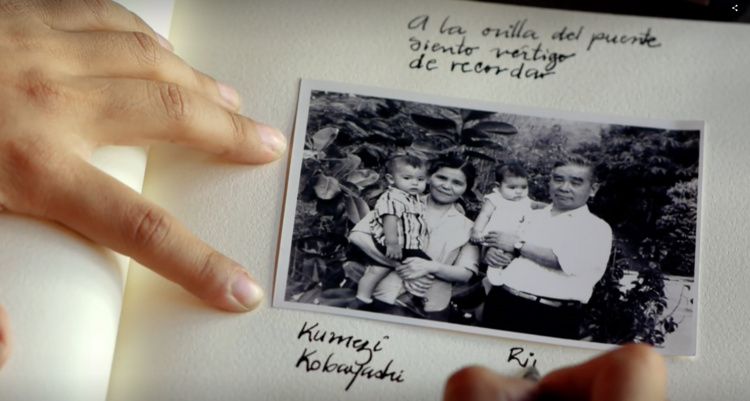
February 3, 2026
12:20 pm
Uris Hall, G08
Cancelled due to an emergency!
Although the internment of Japanese Americans during World War II following the invocation of the Enemy Aliens Act has been well documented, the parallel experiences of Latin Americans of Japanese descent remain far less examined. Like their U.S.-based counterparts, these communities were removed from their homes, stripped of property, and interned in U.S.-run camps. In Venezuela, rather than being interned abroad, Caracas’ Japanese community was confined to a camp in Ocumare del Tuy—a story almost entirely erased from both Venezuelan historical memory. This history raises urgent questions about whose experiences are recorded, whose are forgotten, and which forms of memory gain recognition. In this talk, Elizabeth Barrios explores these questions through Nikkei (2011), the largely overlooked documentary by filmmaker Kaori Flores Yonekura, which traces her own family’s experiences and illuminates a hidden chapter of Venezuelan and hemispheric history. The film not only preserves personal and collective memory but also challenges us to rethink the boundaries of national and transnational histories, exposing the racial and political logics that made such internments possible. These questions are particularly urgent today, as the Enemy Aliens Act has been invoked once more (this time specifically targeting Venezuelans), revealing how the mechanisms of exclusion and surveillance from the past continue to resonate in the present.
Elizabeth Barrios is an Associate Professor in the Department of Modern Languages and Cultures at Albion College. This year she is a fellow at the Society for the Humanities. Her research explores ecology, energy humanities, and Latin American and Latina/o literature and media, with an emphasis on Venezuela and its diaspora. She is the author of Failures of the Imagination: Reckoning with Oil in Venezuelan Cultural Production (University of Pittsburgh Press, 2026), which examines how Venezuelan literature and media have confronted the social and ecological toll of oil, often in ways overlooked or deliberately obscured by critics and institutions
Additional Information
Program
Einaudi Center for International Studies
Latin American and Caribbean Studies
Reppy Institute for Peace and Conflict Studies
Residual Sovereignty: Bodies, Radionuclides, & the Birth of the Marshallese State
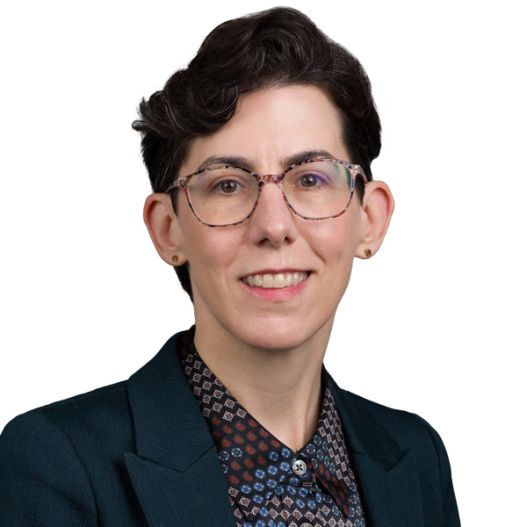
March 26, 2026
12:00 pm
Uris Hall, G08
Marshall Islanders explain that US nuclear blasting is woven into their polity “kone jubar”—like an ironwood tree roots in the soil; like a child belongs to the lands of their mother’s lineage. This talk is about bodies (biological, territorial, political) and persons (natural and legal), and about radionuclides that expose, permeate, entangle, and transform them. Between 1946 and 1958, the United States detonated sixty-seven of its most powerful nuclear weapons in the Marshall Islands, which it governed as part of a United Nations “strategic trusteeship.” During decolonization negotiations, the residues of US nuclear colonialism shaped the birth of the Marshallese state. In international law, “residual sovereignty” describes sovereign rights that will only vest fully following the removal of an encumbrance. In the late 1970s, US Defense Department planned to retain extensive military rights in the Marshall Islands that would limit Marshallese state sovereignty indefinitely. Marshallese sovereignty also became residual in a second, material sense, for it was shaped by the enduring damage and residues of US blasting. As a condition of the formation of a Marshallese state “in free association” with the United States, US negotiators required Islanders not only to cede military and security rights, but also to settle all legal claims relating to the nuclear legacy. This talk will explore the significance of this history for broader post-World War II entanglements between the racialized international legal politics of decolonization, on the one hand, and the material and epistemic politics of technology and technogenic pollution, on the other.
Speaker
Mary X. Mitchell is a lawyer and a historian of science and technology. Her forthcoming book, Unsettling Sovereignty: International Law, Nuclear Weapons, and US Extraterritorial Power in Postwar Oceania (University of Chicago Press), uses legal wrangling over US nuclear blasting and contamination in the Marshall Islands to explore the shifting shape of sovereignty following World War II. Mitchell is an assistant professor in the Federated Department of History at the New Jersey Institute of Technology and Rutgers-Newark.
Additional Information
Program
Einaudi Center for International Studies
Reppy Institute for Peace and Conflict Studies
Visiting Scholar David Cortright Publishes on PACS Issues
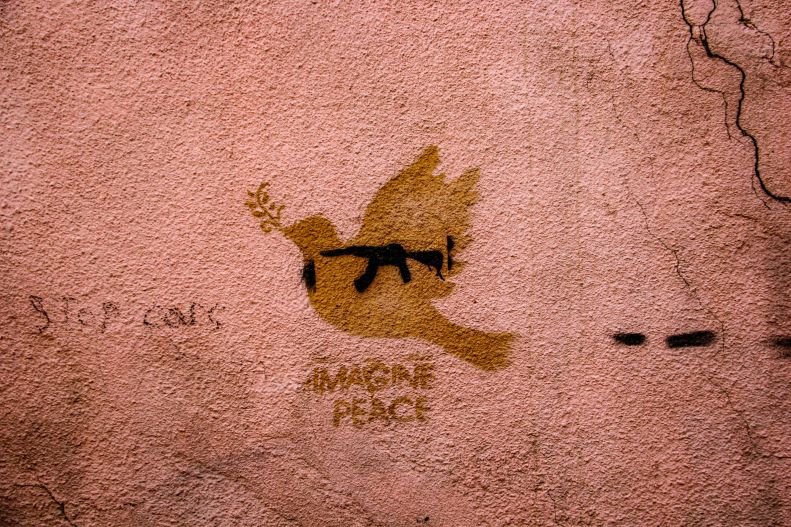
David Cortright, PACS
David Cortright has recently published commentary on Venezuela, and on the peace movement.
- “People of Faith Helped Stop Nukes Once: Let’s Do It Again,” with William D. Hartung, Sojourners, January/February 2026,
- “The American peace movement we need today,” with Peter J. Quaranto, Waging Nonviolence, December 16, 2025,
- "No to Wars of Conquest in Venezuela and Beyond" with Peter J. Quaranto, Center for International Policy, Jan 9, 2026
Additional Information
It’s Not the Oil. It’s Florida.
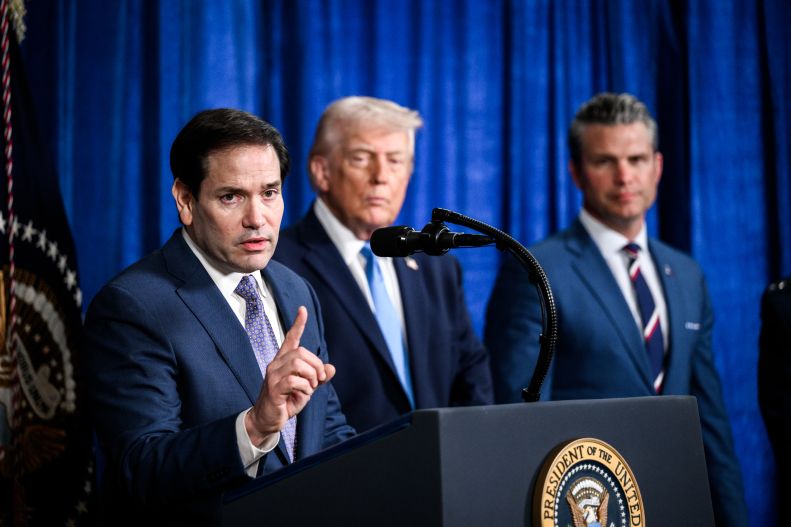
Esam Boraey, PACS/Migrations
Esam Boraey, graduate student with our Reppy Institute for Peace and Conflict Studies and Migrations Program, argues that the U.S. capture of Nicolás Maduro was driven less by concerns over oil or narcotics than by U.S. domestic politics.
Additional Information
Protecting Civilians in Modern Warfare: The Principle of Foreseeable Harm to Innocents
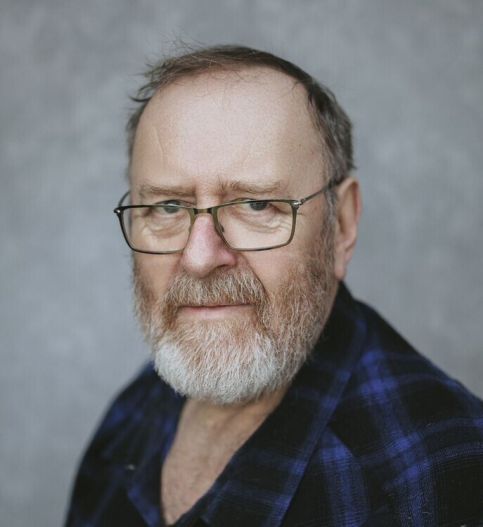
March 5, 2026
12:00 pm
Uris Hall, G08
Modern surveillance technology has transformed the epistemic conditions of armed conflict. Drones, satellites, and persistent ISR systems now enable military commanders to identify individual civilians and predict, with statistical precision, the casualties their strikes will cause. Yet international humanitarian law continues to operate on frameworks designed for an era when such knowledge was unavailable - permitting foreseeable civilian deaths as lawful "collateral damage" provided they are not "excessive" relative to military advantage gained.
The Principle of Foreseeable Harm to Innocents (FHI) addresses this gap through one core proposition: if you can see them, and you can spare them, you must spare them. FHI does not create new law but clarifies what existing obligations under Additional Protocol I already require when properly interpreted for contemporary capabilities. It introduces an "avoidability gate" into targeting analysis: before asking whether civilian deaths are proportionate, commanders must first ask whether they are avoidable through feasible alternatives—different timing, different weapons, different approaches.
This lecture presents FHI as a further-protective interpretation of existing international humanitarian law, particularly Articles 51 and 57 of Additional Protocol I. Drawing on cases including the 2016 drone strike that killed Mohammad Azam - a Pakistani taxi driver identifiable as a civilian, whose death was foreseeable with certainty, and avoidable through alternative means—it demonstrates how current law permits outcomes that contradict its own protective purposes. FHI reorders the legal analysis to match the moral intuition that knowledge of preventable harm generates obligation to prevent it.
Speaker
Neil Cameron read law with computing at Sussex University, where he studied international humanitarian law under Professor Colonel Gerald Draper. Called to the Bar in 1978, he practised briefly before moving into legal technology consultancy - a field in which he has worked for over thirty-five years, latterly as an adviser to major law firms on technology strategy. He conducted a review of IT systems for the European Court of Human Rights and currently serves as Lead Analyst at Legal IT Insider.
His interest in humanitarian law never waned. Reading Daniel Ellsberg's Confessions of a Nuclear War Planner during the COVID lockdown prompted him to write The Inherent Flexibility of the Human Moral Compass, a two-part analysis tracing the erosion of civilian protection norms from the League of Nations' 1938 resolution through to contemporary drone strikes. The Principle of Foreseeable Harm to Innocents grew from that work. He has since engaged with scholars at Cornell Law School and Oxford's Ethics and Laws of Armed Conflict research group, and has an academic article under preparation. Originally from the UK, Neil currently lives in Ithaca, New York.
Hosted by the Reppy Institute for Peace and Conflict Studies, part of the Einaudi Center for International Studies
Additional Information
Program
Einaudi Center for International Studies
Reppy Institute for Peace and Conflict Studies
South Asia Program
Information Session: South Asia Summer Language Fellowships

February 4, 2026
4:30 pm
Uris Hall, G08
Achieve fluency in a language of South Asia with the help of a Foreign Language and Area Studies (FLAS) summer fellowship. You’ll gain valuable knowledge about cultures and countries in which your language is commonly used, while developing skills in a language critical to the needs of the United States. Graduate and undergraduate students are eligible.
Eligible South Asian languages available for in-person or virtual intensive language study include Bengali, Dari, Gujarati, Hindi, Kannada, Malayalam, Nepali, Oriya, Pashto, Persian, Punjabi, Sinhala, Tamil, Telugu, Tibetan & Urdu.
The deadline to apply is February 18, 2026.
Can't attend? Contact sap@einaudi.cornell.edu for more information.
Additional Information
Program
Einaudi Center for International Studies
Reppy Institute for Peace and Conflict Studies
Southeast Asia Program
South Asia Program
Southwest Asia and North Africa Program
Migrations Program
